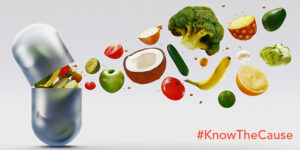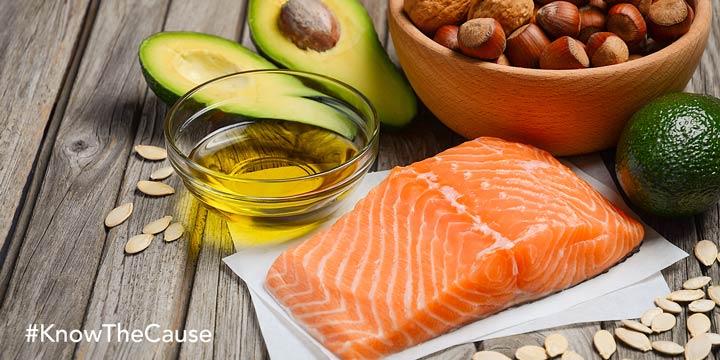

Fat is a much maligned and misunderstood nutrient; it is only in recent years that our understanding of fats has significantly improved.
For years, we were told that we should avoid fat in all its forms because it would make us gain weight and give us heart disease. Today, we know that getting a proper amount of fat in the diet is critical for maintaining good health, including heart health. However, eating fat is also good for our skin and brain, necessary for absorbing certain nutrients, and can be beneficial for maintaining a healthy weight.Our attitude on fat has changed so much in the last few years, that one of the most popular diets––the ketogenic diet––encourages people to consume a majority of their daily calories from fat. We’ve literally done a 180-degree turn in our attitude towards fat! While mainstream attitudes have changed about fat, deciding how much and what kinds of fats are healthy deserves a slightly more nuanced discussion.
Unsaturated Fat
Unsaturated fats are thought to be the healthiest kinds of fats to consume. These are typically liquid at room temperature. There are two kinds of unsaturated fat––monounsaturated fat and polyunsaturated fat. Polyunsaturated fats include Omega 3 fatty acids, which are known to provide a number of health benefits. The best sources of these kinds of fats are fatty fish, such as salmon, tuna, mackerel, etc. Omega 3s are also prevalent in walnuts, chia seeds, and flax seeds.
Mono unsaturated fats are another beneficial type of fat and are prevalent in olive oil, avocados, hazelnuts, Brazil nuts, cashews, sesame seeds and pumpkin seeds. Eating these types of fats are also associated with good heart health and other benefits.
Saturated Fat
Saturated fats are typically solid at room temperature and found in meat, eggs and dairy products. They are also found in coconut oil and palm oil.
Saturated fats are still demonized because they are thought to increase cholesterol and play a role in the clogging of arteries that lead to heart disease. But often, conflicting data emerges on whether we should be demonizing saturated fats to the degree that we do. Like all things, moderation with saturated fats is prudent. Many of the foods on The Kaufmann Diet contain saturated fat, such as grass fed beef, coconut oil, and eggs. We know that these foods are can be part of a healthy diet that promotes health and proper weight. We also know that the brain is well-fueled with a mix of saturated and unsaturated fats, and that hormone production is closely linked with having some saturated fat in the diet.
Trans fats
There are two types of trans fats: Those naturally found in animal products, and those that are artificial. Ironically, trans fats and hydrogenated oils were once recommended as part of a heart healthy diet. We now know that they play far more of a role in heart disease than naturally-occurring fats. Artificial trans fats should always be avoided. Artificial trans fats are prevalent throughout our food system; these include many of the hydrogenated oils found in processed foods, fried foods, shortening, and margarine. These should unilaterally be avoided.
Doug Kaufmann has written many books that cover a full range or health issues. Find out which of his books best suits you by clicking the button below.
Doug Kaufmann developed his diet after years studying the clinical effects of pathogenic fungi on the body. Fungi and yeasts can become parasitic organisms on and inside our body, causing health problems that can be difficult to diagnose. Learn more about the Kaufmann Diet, change your life and know the cause.
We encourage all visitors to this site to take some time and study these technical articles prior to initiating lifestyle changes, including dietary changes and to do so with their physician’s awareness and approval. The articles posted in this link are scientific and with few exceptions are taken from medical journals familiar to healthcare workers.
Looking for help assembling antifungal Kaufmann Diet approved recipes for breakfast, lunch or dinner? We have several videos, books and recipe write ups here on Know the Cause that will help your health journey. The recipes in this section are so good, you’ll feel like you’re indulging. No sacrifice needed! Enjoy.
© 2024 Mediatriton Inc. All Rights Reserved • Website by Skynet Solutions